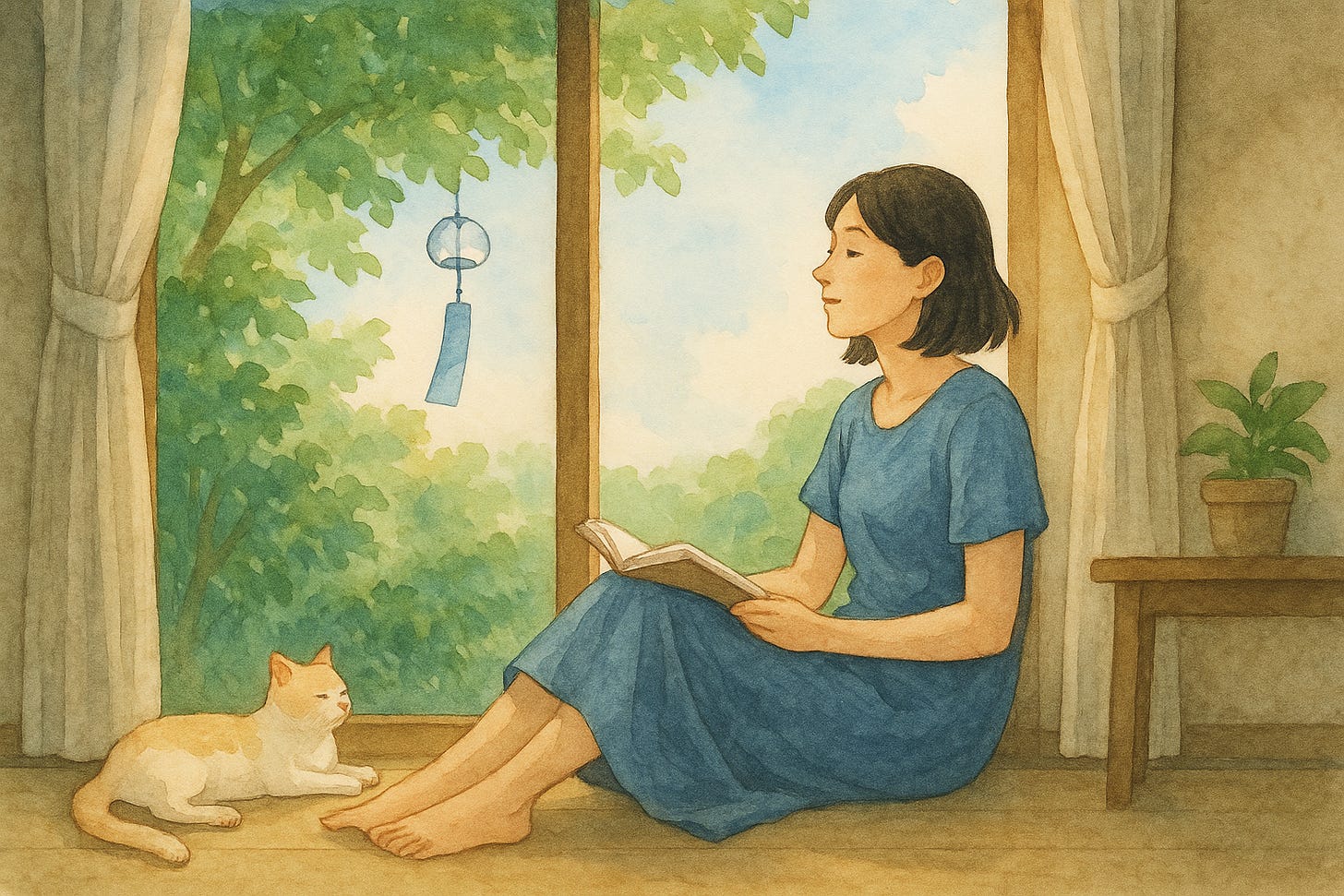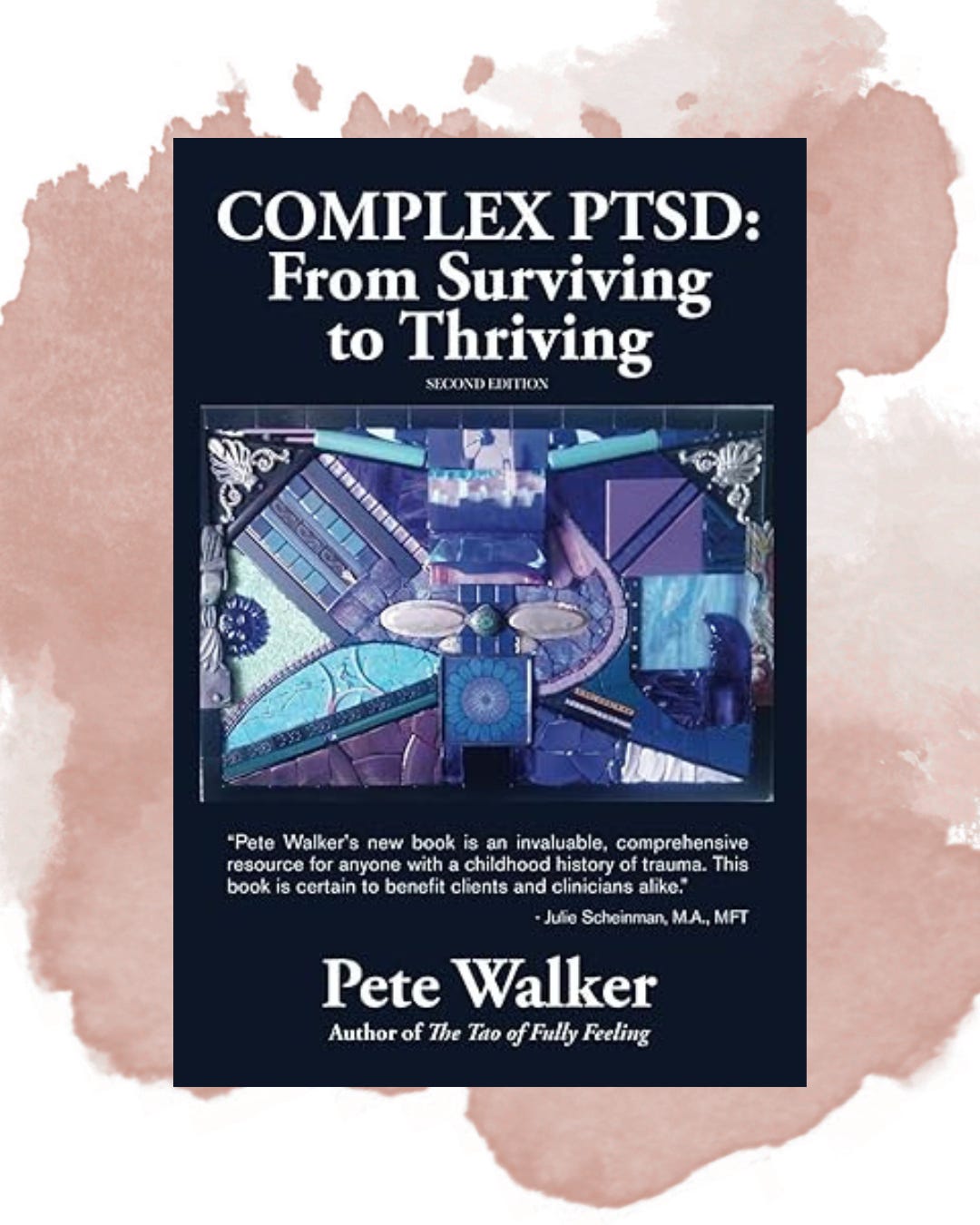Small Joys, Digital Clutter, and Healing from the Invisible
Weekly Insights: Subtraction is the key to happiness, here's why :
Hello friends,
I hope you've all been doing well these days!
I imagine most people don’t reject the idea of happiness, but what’s fascinating is how different our definitions of happiness can be.
Some people seem to have everything.
The kind of wealth that makes their life smooth, a full calendar of social invitations, a resume that ticks all the right boxes.
And yet, something inside them stays hollow.
Their days are packed, but joy rarely makes an appearance.
It’s as if happiness has become another item on their to-do list, and always postponed.
Others live more quietly, their joys are modest.
A favorite café that happens to be open, no line at the door.
A kind gesture returned with unexpected sincerity.
These tiny things are enough to warm their hearts for a whole day.
And maybe that’s exactly why they can feel joy so readily because they haven’t built a fortress of expectations that joy must break through to be allowed in.
And then there’s a third kind.
Those who spend their days aspiring to become the first group,
all while scoffing at the second.
To them, finding joy in small things is proof of a life too small.
They mistake contentment for complacency, and gentleness for a lack of ambition.
But is happiness really something to be ranked?
Are we more deserving of joy only after passing certain thresholds?
I don’t think so.
It all depends on where your baseline for joy is.
And in my view, the ability to keep that baseline steady, not letting it inflate with age, status, social circles, or the illusions of social media, is the real secret to lasting happiness.
As a quote states:
The soul grows by subtraction, not addition.
That’s the theme I want to share with you this week.
These days, the amount of information we consume far exceeds what we actually need.
Still, we hoard it, afraid to miss out, even if most of it is just noise.
This week’s Weekly Insights are my attempt to push gently in the other direction.
I hope you enjoy reading it!
1. The Never-Ending Reading List
One of my summer projects this year is a “digital cleanup.”
I realized I’ve subscribed too many newsletters and followed far too many brilliant writers. Most of these encounters happened when I was going through something difficult, and their words helped me in those moments.
But perhaps they are no longer what I need right now. Maybe it's time I redirected my attention to what truly matters to me in this season of life.
One writer whose newsletter must still remains in my inbox is Oliver Burkeman. In a recent piece on immediacy, he shared that he deleted a huge backlog of “read later” articles.
He described this tendency to hoard instead of engage. As if saving something for later is a substitute for actually doing something with it. Ironically, the longer a list grows, the harder it becomes to act on it.
So he came up with a new browsing rule: if he finds an interesting article, he’ll either read it immediately and take notes, or simply let it go.
To be honest, that’s easier said than done.
Sometimes when I stumble upon a good article, I’m not in the right state to truly absorb or reflect on it.
For me, most of the newsletters and RSS feeds I follow are in English, which isn’t my native language, so reading takes more time and effort. Saving them for later seems like the better choice.
Hence, here’s my new rule:
I only allow myself to save up to three articles per day, and I must finish reading them the same day.
To ensure myself NO more mindless hoarding.
2. The Power of Immediate Action & Life’s Simple Joys
Last week, I read a beautiful reflection by Chris Williamson on simple pleasures. His message reminded me of the Japanese concept of 小確幸 (shōkakukō): small but certain happiness. It’s something I’ve been trying to hold on to lately.
Chris reveals, sometimes we feel ashamed for feeling too happy over something small.
“As if taking pleasure in something tiny reveals the smallness of my life.”
And yet, on the other hand, we’re remarkably sensitive to small annoyances:
“a slow barista, the Wi-Fi buffering, a traffic jam that adds seven minutes to our commute…”
Aren’t these just as trivial?
And yet we tolerate them far less.
Maybe it’s time we reminded ourselves that small joys matter, too.
In an age where one swipe on your phone can show you someone living a life 500 times more luxurious than yours, it’s easy to raise the threshold for what we think qualifies as “happiness.”
But what about a stranger’s smile?
A discount on something you just ran out of?
A walk in perfect weather?
One podcaster once shared:
“If I wake up pain-free, and I can move my hands and legs—then I already feel lucky.”
To notice the small, ordinary goodness in daily life. I believe that’s a kind of superpower.
3. Understanding CPTSD: What Causes It, and How We Can Heal
I recently brought back a book from Taiwan that deeply moved me: Complex PTSD: From Surviving to Thriving by Pete Walker.
It was first published over a decade ago, but its insights remain uncannily relevant to the psychological struggles of our time.
Walker opens by stating that CPTSD is not inborn, nor is it a personality flaw.
It’s a psychological response developed after repeated "mission failures" in key life stages—like childhood, adolescence, or early romantic relationships.
In other words, it’s not something we’re born with, but something shaped by our experiences.
And the good news is: it can be healed, gradually, through intention and care.
The first third of the book explains what CPTSD is and introduces the 4F trauma responses many people develop after repeated emotional wounds:
Fight, Flight, Freeze, and Fawn.
Walker focuses primarily on childhood severe trauma (abuse, neglect, abandonment), but later admits he regrets narrowing the scope so much.
Many people with CPTSD didn’t experience extreme family dysfunction. Some grew up in pretty good family, but still find themselves stuck in loops of anxiety, avoidance, powerlessness, or excessive people-pleasing.
Sometimes, all it takes is a single painful comment, a disappointed look, or a moment of public embarrassment as a child, and that pain burrows deep, becoming an invisible wound that continues to shape us.
When these feelings go unprocessed, they can later manifest as full-blown symptoms of Complex PTSD.
What I appreciate most about this book is its practicality.
Walker offers many specific, actionable steps to guide readers out of the survival state and into a thriving one.
On his website, he also shares a series of blog posts about managing CPTSD.
I’ve translated some of these into Chinese and included them on my Mental First-Aid Kit page, hoping they might help others navigating similar struggles.
Thanks for being here. I hope some of these thoughts meet you where you are right now, and offer a small sense of clarity, grounding, or companionship.
As usual, I leave a question for you:
🧠 What tiny, ordinary thing has brought you joy lately, and did you let yourself feel it?
Feel free to leave a comment or send me message! I always love reading your thoughts.
Have a wonderful day and see you soon.💫



